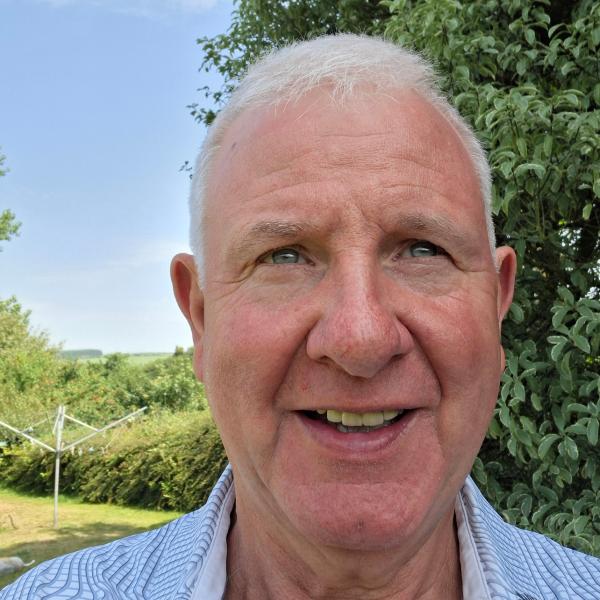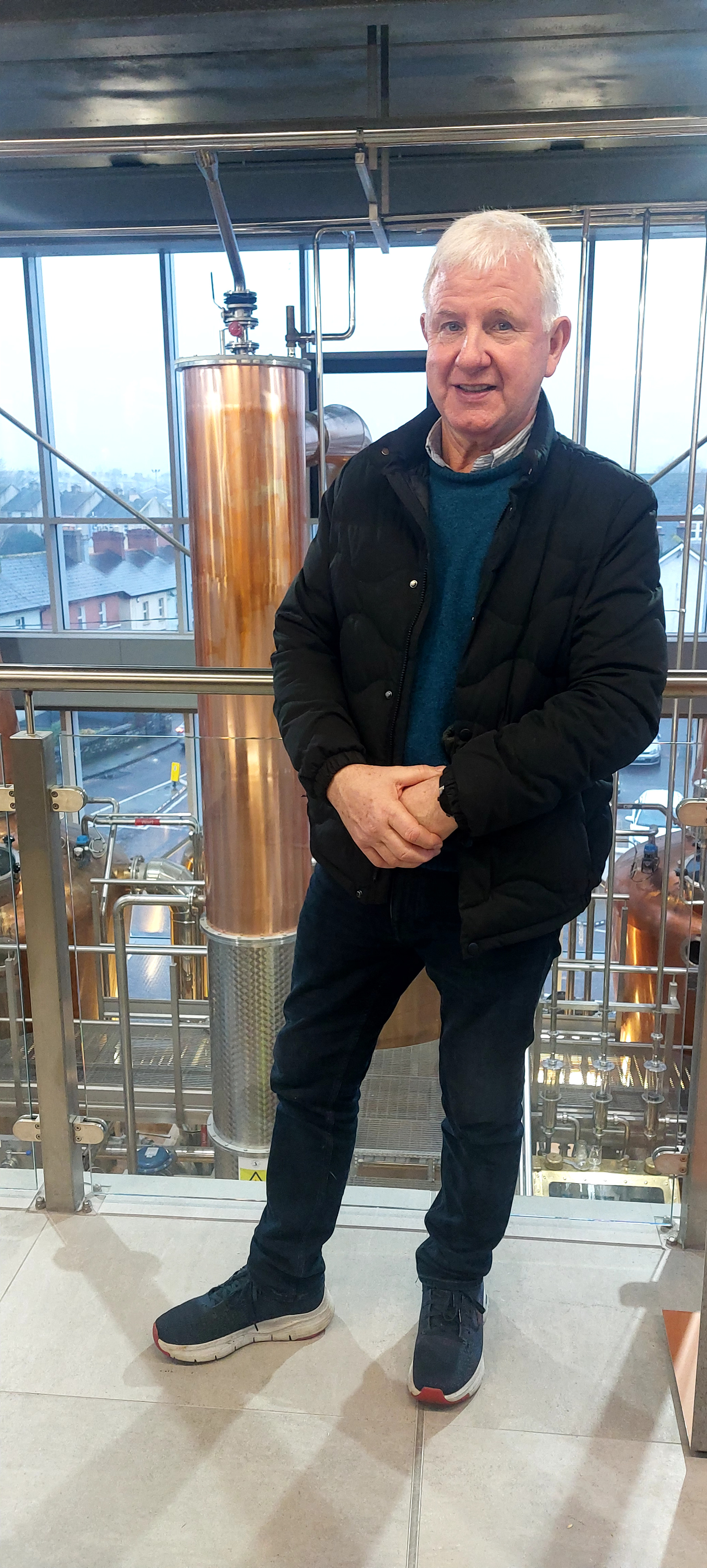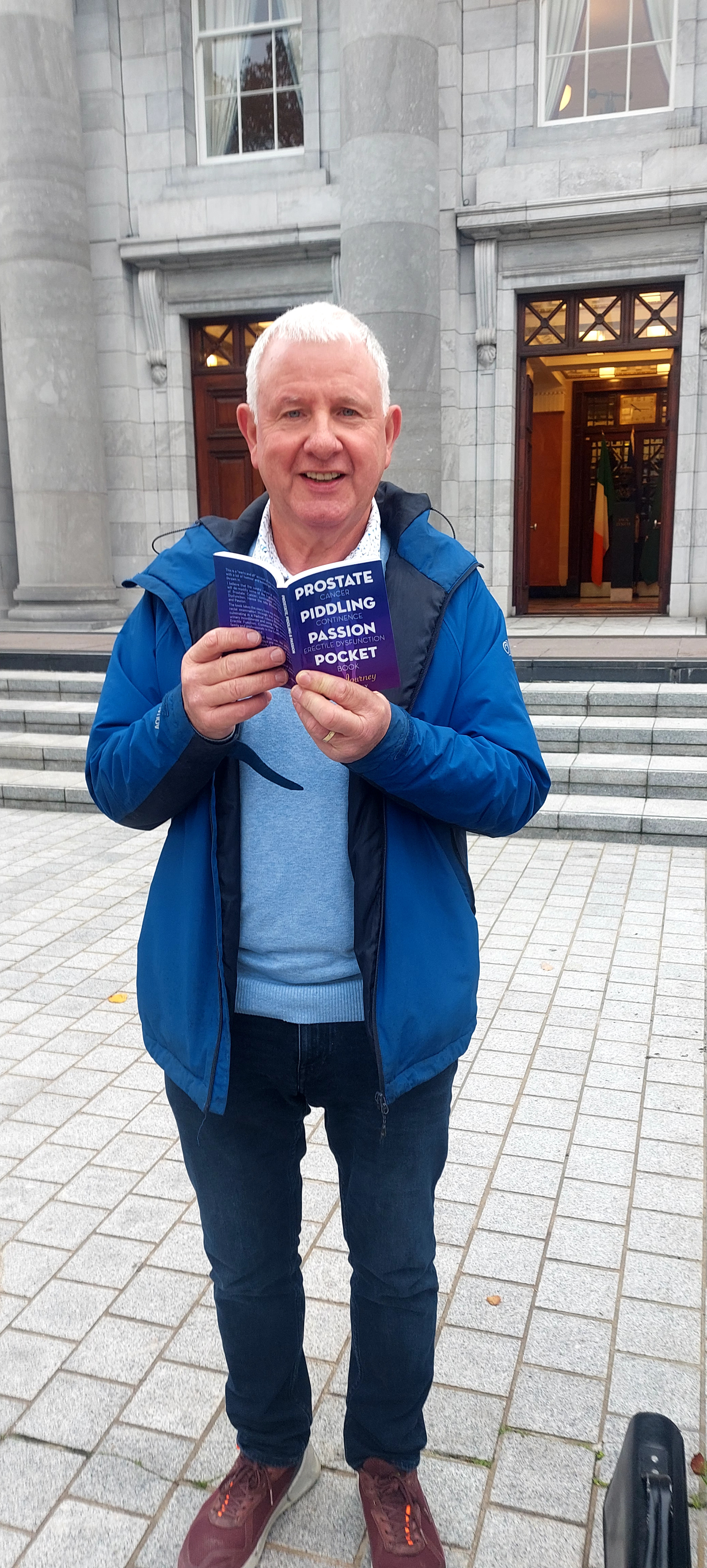Gerry's story
“If you keep putting things off to do with your health, delay things or decide you’re too macho to get things checked, that will be your downfall.”

Gerry Kelly, 67, from Cork was diagnosed with prostate cancer in 2021. His cancer was discovered as a result of a routine blood test that showed a high PSA (prostate-specific antigen) level.
“They did another blood test,” says Gerry. “I was confident that something had gone wrong in the lab and that’s why my PSA came up high in the previous test, because my bloods always came back without any problem before that point.
“After that, I had to back to the doctor, and they did a rectal exam but didn’t find anything. After that, I was sent for three tests – a flow test, a cystoscopy, and an MRI.”
The doctor told Gerry that the tests had shown an area of concern, and he was sent for a biopsy. Gerry later learned that his tumour was in a location where it couldn’t be detected by a rectal exam, but it did show on the other tests.
Gerry was surprised when he was told he had prostate cancer, but the support of his wife and the fact that he knew other men who had experienced prostate cancer gave him hope.
“My wife, Maura, is a nurse and has worked in healthcare all her life and she’s very good at steadying me,” says Gerry, who is a grandfather-of-four. “The fact that I played golf with two men who’d gone through prostate cancer gave me hope.
“One of them had been diagnosed with it years before, and he was walking, talking and strong, and the other man had been diagnosed and been through treatment. He was doing really well and living a good life. So, I hung my hat on two very positive stories of men I know who’d had prostate cancer. And I knew that if people neglected prostate cancer, that it could spread to other parts of the body.”
In March 2022, Gerry underwent a radical robotic prostatectomy, and he was relieved when he was told the surgery was a success.
“They found that 25% of my prostate gland was cancerous, but it was all contained in that area, which was great news.”

Recovery was difficult for Gerry and came with a lot of adjustments, and he feels it’s important to share the reality of life after having your prostate removed.
“I think it’s really important to discuss what level of sexual function you want to have after surgery,” says Gerry. “I told my consultant my expectations so he did a nerve-sparing prostatectomy, which can minimise the risk of erectile dysfunction and urinary incontinence.”
One of the issues Gerry faced after surgery was urinary incontinence, but he has found ways to manage this, and pelvic floor exercises have helped to lessen the severity of it.
“I had continence issues after surgery and had to use nappies and pads,” says Gerry. “I remember I went out for a few drinks to celebrate the All-Ireland, but I only had a pad on and there were no bins in the men’s toilets. So, I ended up having to tie a jumper around my waist and head back to where I was staying.
“Penis clamps are really useful. If you’re at a wedding and the toilets aren’t near, and you know people will be stopping you to talk to you as you’re walking to the toilets, you can be comfortable knowing that the clamp will hold it until you get to the toilet.
“I wouldn’t go out for pints without a pad now, or to a wedding without using a clamp. Using those things means that I am in control of myself, it makes me feel like I’m in charge again.”

In 2023, Gerry released a book called ‘Prostate, Piddling, Passion’ about his experience, as he often got asked about how treatment had impacted him. His honesty and candidness led to people encouraging him to write about what he had gone through.
“I’d be very open with them and share my experience with them, and they told me I should write a book to help other men going through this,” he says. “I’ve had a lot of people who’ve heard that I’ve had prostate cancer, who ask me about intimacy options after surgery, so I wrote a lot about that in the book too.
“I remember telling people who asked that the sexual function journey is like a journey from Cork to Donegal, but at that time I felt like I was only at Galway. It took between 12 and 16 months for function to fully return, but it’s different to before and Viagra helps.”
Gerry is sharing his story to encourage men to pay attention to their bodies and prioritise their health.
“I’m happy that my story is a very good story,” he says. “I think my experience shows why it’s so important for men to be proactive about their health.”

